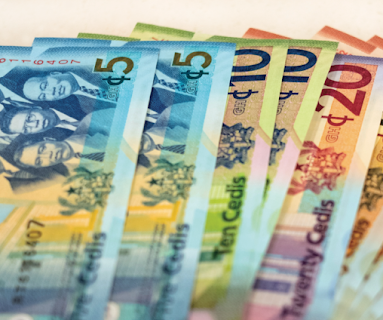 |
| The Ghana Cedi (GH¢). |
Bloomberg's latest rating of
global currency performance places the Cedi just above the Sri Lankan Rupee as
the worst-performing currency.
Since the beginning of the
year, Bloomberg has been tracking the performance of 150 different currencies
throughout the globe. The Cedi has performed worse than all but one of these
currencies.
The Cedi has been under
significant pressure on the exchange rate in a very short period of time (less
than 8 months), owing to its continual devaluation against certain major
international currencies such as the US Dollar, the British Pound, and the
Euro.
The Bank of Ghana reports
that at the start of 2018, one dollar was equivalent to GH¢6.02 in Cedi value.
One dollar now costs an
average of GH¢9.37 on the market, up from $1.00 and GH¢7.43 only 20 days ago.
This implies that the Cedi
has lost more than GH¢3.30 against the dollar in a little over 8 months.
To address the exchange rate
problems, the Monetary Policy Committee is expected to meet today to “review
recent developments in the economy,” according to a statement released by Bank
of Ghana.
That comes after it
maintained borrowing prices at 19% last month on hopes that inflation may be
slowing down and to give the economy time to adjust to a total of 550 basis
points of rate increases since November.
Following the Bank of Uganda,
the central bank is the second in sub-Saharan Africa to convene an emergency
meeting since the conflict between Russia and Ukraine started in February.
The meeting follows the announcement
by regulators on Monday that, water and energy rates would increase by 22%
and 27%, respectively, starting in the next month.
Source:
ghananews.hrforum.uk




.jpeg)



0 Comments